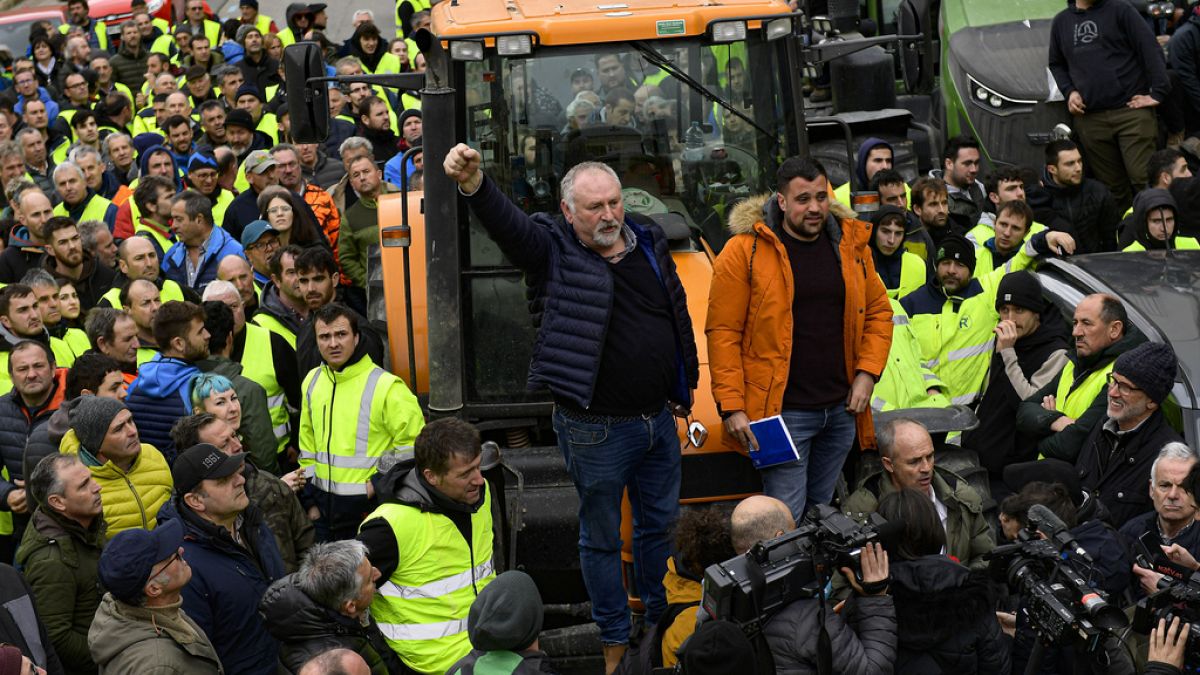In May 2022, a few weeks after Russia's full-scale invasion began, Brussels gave farmers in Ukraine permission to sell their products in the European Union without paying customs. However, farmers in the EU say the move has created unfair competition.
Farmers in Dorohusk, southeastern Poland, continue to protest against the European Union's farming policies, particularly those that permit the sale of Ukrainian agricultural products across the EU.
The village of Dorohusk is just four kilometres from the Ukrainian border. Polish farmers reportedly blocked access to checkpoints earlier in the week to prevent cheap grain, milk and other products from crossing the border into Poland.
"We only let one car through every hour. One in one direction and one in the other, plus humanitarian aid, buses and coaches, on which there may be perishable goods," protester Pawel Ilasz told Euronews.
"We have to let some people through, we understand that, but we also want to be understood. Fertilisers are expensive in our country, and wheat is getting cheaper all the time. Everyone has a family, everyone has children," he added.
In a bid to appease the farmers, authorities in Warsaw and Kyiv came to Dorohusk to meet with the protesters.
"Today we concentrated on checking the border controls. We agreed on a number of small arrangements to regulate traffic before the event was suspended. And today, we're checking what this looks like in practice," said Paweł Gancarz, Poland's Deputy Minister of Infrastructure.
Serhiy Derkacz, Ukraine's Minister of Infrastructure also told Euronews: "Blocking the border is indeed a problem, which leads to other economic and social problems in Ukraine. It is therefore very important to keep the border open, especially at a time when Russia is continuing its war in Ukraine".
On Monday, some angry farmers ransacked a truck carrying Ukrainian grain across the border and dumped the cargo.
The Polish Minister of Agriculture declared that he was in talks with his Ukrainian counterpart to limit the quantity of agricultural products crossing the border. He added that the solution would have to come from the European Commission.
Meanwhile, demand for Polish sugar, milk and meat has fallen and as a result, farmers are holding off on investments.
Farmers are also concerned that the EU’s Green Deal, which calls for limits on the use of chemicals and greenhouse gas emissions, will result in a reduction in production and income.
The Polish farmers say they will continue their industrial actions until 10 March.
Similar protests have taken place across the bloc in recent weeks. Farmers complain that the EU's policies on the environment and other matters are a financial burden and make their products more expensive than non-EU imports.
